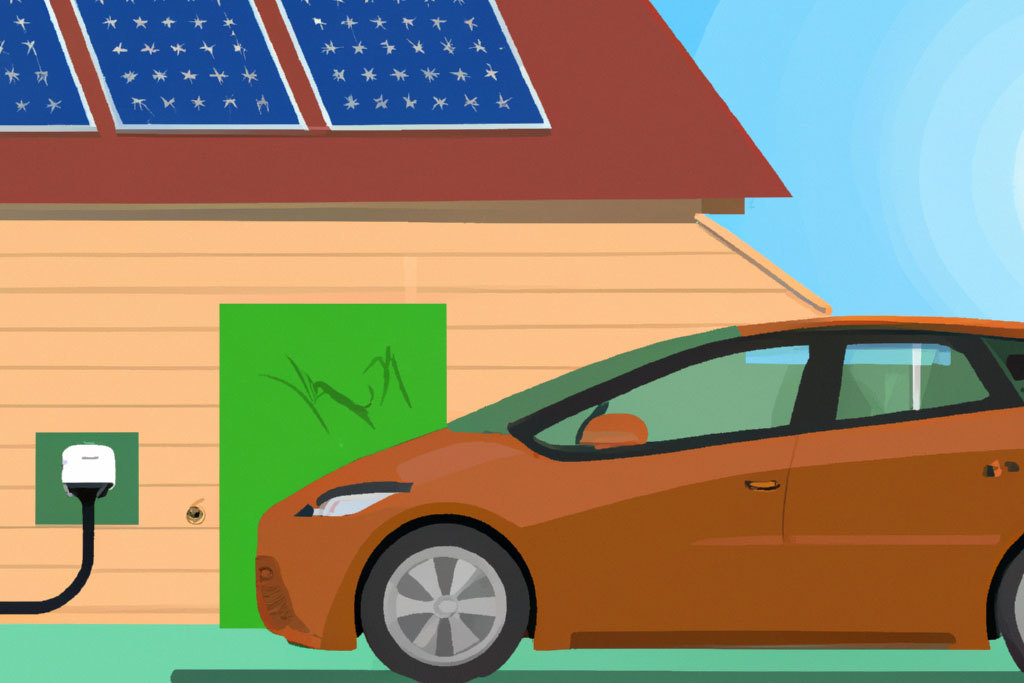
The Power of Electric Vehicles: A Greener Future Powered by Renewables
As the world confronts the challenges of climate change and environmental degradation, transitioning from traditional petrol or diesel vehicles to electric-powered vehicles (EVs) is a crucial step towards a sustainable future. EVs offer numerous advantages, such as reduced greenhouse gas emissions and improved air quality. However, the environmental benefits can be further amplified when the electricity used to charge these vehicles is sourced from renewable suppliers or generated by personal solar panels. This article explores how combining EVs with renewable energy sources can create a powerful synergy in the fight against climate change.
Reducing Greenhouse Gas Emissions
The transportation sector is a major contributor to greenhouse gas emissions, primarily due to the burning of fossil fuels in conventional vehicles. By transitioning to electric vehicles, we can significantly decrease these emissions. EVs produce zero tailpipe emissions, eliminating carbon dioxide, nitrogen oxides, and other harmful pollutants. However, the full potential of emission reduction is realized when the electricity used for charging is derived from renewable sources.
Harnessing the Power of Renewables
When EVs are charged with electricity from renewable sources, such as solar, wind, or hydropower, their environmental footprint shrinks even further. Renewable energy produces little to no greenhouse gas emissions during electricity generation. By choosing a renewable energy supplier or installing solar panels on homes and utilizing the sun's energy to charge EVs, individuals can effectively reduce their reliance on fossil fuels and contribute to a cleaner energy system.
Mitigating Air Pollution
Petrol and diesel vehicles not only emit greenhouse gases but also contribute to air pollution, posing significant risks to human health. The emissions from these vehicles contain particulate matter, nitrogen oxides, and volatile organic compounds, which are harmful to both the environment and public health. Electric vehicles, by eliminating tailpipe emissions, help reduce air pollution and create cleaner and healthier urban environments. When charged using renewable energy, the synergy of EVs and renewables presents a powerful opportunity to improve air quality.
Driving Energy Independence
Relying on fossil fuels for transportation makes countries vulnerable to geopolitical tensions and fluctuations in oil prices. Transitioning to electric vehicles combined with renewable energy enables greater energy independence. By generating their electricity through solar panels or sourcing it from renewable suppliers, individuals and communities can reduce their dependence on non-renewable energy sources and contribute to a more sustainable and resilient energy system.
Advancing Technological Innovation
The shift towards EVs and renewable energy fosters technological advancements and innovation. As the demand for electric vehicles increases, manufacturers invest in research and development, leading to improvements in battery technology, charging infrastructure, and overall efficiency. Similarly, renewable energy technologies benefit from increased adoption, resulting in enhanced efficiency and cost-effectiveness. This virtuous cycle of innovation can accelerate the global transition towards a low-carbon economy.
Conclusion
Transitioning from petrol or diesel vehicles to electric-powered vehicles represents a significant leap towards a more sustainable transportation system. However, the environmental benefits are magnified when the electricity used to charge these vehicles is sourced from renewable energy suppliers or personal solar panels. By combining EVs with renewables, we can drastically reduce greenhouse gas emissions, mitigate air pollution, foster energy independence, and drive technological innovation. Embracing this synergy is an essential step in creating a greener future for generations to come.
